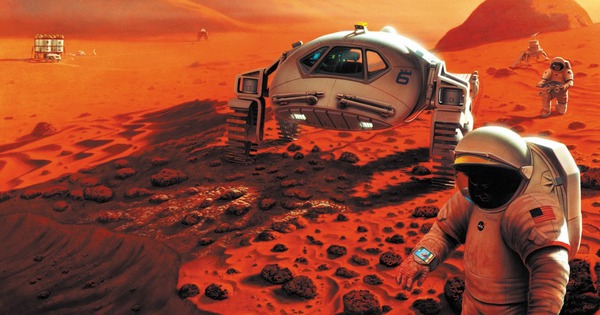The new research has a direct impact on the likelihood of future Mars missions.
Future missions to Mars are under threat, as new research published in Nature shows long space travel dates can affect the structure of astronauts’ kidneys.
Scientists have sampled humans and mice from 40 space missions, and found that the cosmic environment is changing the environment. of the test subjects. Specifically, some parts of the kidneys showed signs of obvious atrophy after only one month of suspension in the ngo environmentthe Earth.
The new discovery could disrupt NASA or SpaceX’s efforts to send humans to Mars, which are expected to take place in the coming decades. Elon Musk has said he will send people to Mars in “10 to 20 years“, and his company SpaceX is already developing prototypes a can send astronauts to the Red Planet.
It is expected that the Starship model will be used by SpaceX to carry people to Mars – Photo: Internet.
The team of scientists at University College London, who conducted the new study, said the risk of harm to health was proportional with time astronauts working in the harsh environment of space. The Mars missions are no exception.
According to the researchers, the two immediate solutions are to find a way to protect the astronauts’ kidneys, and to find a way to restore the kidneys right on the spacecraft, for example, a dialysis machine can be installed right on the spacecraft.
“We know what happened to astronauts on relatively short space missions, more precisely than we know about thesehealth issues such as kidney stones,” said Dr. Keith Siew, lead author of the study.
“What we don’t know is why these problems occur, as well as what will happen to astronauts on slow flights If we don’t develop new methods to protect the kidneys, then I think that even though an astronaut can go to Mars, they may need to do dialysis on the way back.”
The harsh environment outside of Earth has always been a big obstacle to exploration – Photo: Internet.
Professor Stephen Walsh, another author of the new study, said: “Our study highlights the fact that, If you’re planning a space mission, kidneys are really important.
“You can’t protect them from galactic radiation with shields, but as we learn more about kidney biology, It is possible to develop technology or pharmaceuticals to support extended space travel.”
